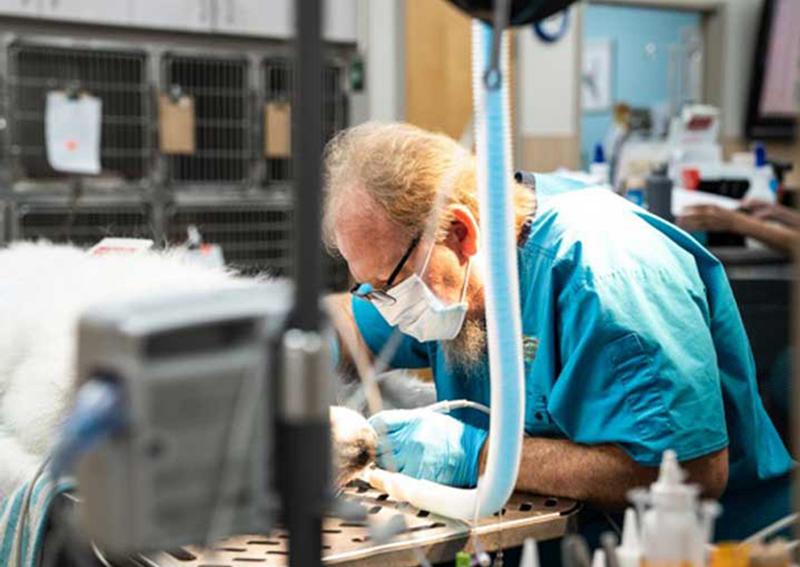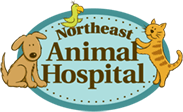Surgical FAQs
Answers to some of your most common surgical questions:
Will my pet be given anesthesia during pet surgery?
Evaluation. Before general anesthesia is administered for surgery, the veterinarian will determine the best regime of anesthetics to use for your pet, which will depend on several factors. These factors can include the breed of animal; the pet’s age and level of excitement; his or her medical history; any abnormalities of the blood, heart, or lungs; and the type of surgery that will be performed. These considerations may determine the need for a sedative or tranquilizer before the anesthetic is given, the amount of anesthetic to be given, and the method of administration—whether intravenous or inhalant.
Monitoring. During surgery, your companion will be kept free of pain and unconscious by the general anesthesia. The technician will monitor your pet’s vital signs and reactions to the anesthetic and surgical procedure. Special equipment will relate to our team your pet’s heart rate, blood pressure, breathing rate, and body temperature. The surgical team will continuously adjust the dosage of anesthetic in response to your pet’s vital signs and reflexes to the surgical activity.
Recovery. After surgery, the anesthetic will be reduced and your companion’s vital signs will continue to be monitored until he or she is fully awake. The speed of recovery depends on your pet’s health, the amount of time under anesthesia, and the specific anesthetic regime. Pain management will also be exercised to ensure your pet has a comfortable recovery.
How do I care for my pet before and after surgery?
Before. Talk to your veterinarian about any concerns you have. Lack of exercise, weight loss, changes in bowel movement and urination, and mental fatigue are all observations you should share with the vet. In addition—no matter how much he or she begs—don’t give your pet any food for at least 12 hours before the surgery. This will prevent the likelihood of aspiration of food into the lungs during general anesthesia. Check with the veterinarian about the amount of water, if any, allowed for your pet during the hours before surgery.
After: Isolation. Pets may be affected by anesthesia for several days after their surgery and discharge from the hospital. Your pet may not behave normally during this time, so allow him or her to recover in a warm, quiet, enclosed place in your home. Don’t allow children to be alone with the family friend during recovery, no matter how well your pet typically behaves. Your animal companion will be back to normal in a few days.
After: Food and Water. Give special attention to the amount and frequency of food and water during the recovery period of your pet. A very small amount can be offered to your companion every 6 to 7 hours. If your pet is nauseous, he or she may not want food or water for several hours. Inform the veterinarian if your pet has not eaten during the first 24 hours after the surgical procedure.
Of course, every situation is different, so please remember to follow the recommendations of your veterinarian in the preparation and recovery of your beloved pet. The information provided on this website is not intended to replace discussions about pet healthcare between you and your veterinarian.
Return to our Surgical Services page >

